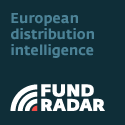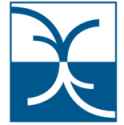Ameris Capital has gathered almost USD 2.5 billion from institutional and high-net-worth investors in Chile, Peru and Colombia, according to Francisco Opazo, partner and institutional distribution manager of the Santiago-based company.
“The last year has been very active in Ameris Capital, said the executive. To date, Ameris-branded funds have accumulated USD 1.5 billion in AUM, while the firm has raised USD 1 billion for third-party international products, said Opazo.
The company has 400 clients around the regional, mainly institutional AFPs and insurance companies and high-net-worth individuals.
In terms of its own funds, Ameris has more than 30 products in categories as diverse as local real estate, international real estate, equities, private debt and private equity.
“In private debt, the highlight has been placement of the Ameris Mortgage-Guaranteed Debt and Ameris Short-Term Financing funds,” Opazo told Fund Pro Latin America. “In the equities area, we launched DVA Silicon – the first themed investment fund in Chile focused exclusively on technology, also with a very good response from investors. As a continuation of this thematic fund, DVA Medtech has just been launched; it’s a fund that invests in the health sector,” the executive said.
Ameris also serves as a representative of third-party brands. Since 2017, it has been working with a platform of alliances for distribution of alternatives funds with managers such as Crescent Direct Lending, Nordic Capital, New Mountain and LGT Capital Partners.
With respect to traditional mutual fund distribution, in 2019 the distributor sealed alliances with SEI Investments (currently with five funds registered at the CCR in Chile), and with MainFirst (three funds registered at the CCR). The latter manager has already attracted some institutional investments.
In its efforts to capture funds from institutional clients, Ameris has a distribution area which works for its proprietary and third-party funds. The area has eight people in the three countries where the firm is present, centralized in Santiago, Lima and Bogota.
– Francisco, how do you see the impact of the pandemic and regulatory issues on the institutional business in these countries, such as pension fund withdrawals and others?
“At an industry level, the institutional business has been affected by the pandemic and by withdrawals in Chile and Peru, which has led to less investment and a greater concentration of institutional investors in the asset managers where they already have investments. However, there are also some positive signs on the regulatory front in the case of Chile, such as the possibility of investing in international infrastructure funds and real estate. It has been a very challenging year. However, Ameris has known how to adapt thanks to its diversified client base in the region.”
– How are institutional investors currently viewing the alternative asset class and what potential does it have in the future in Chile, Peru and Colombia?
“We believe each country has potential. For example, in the case of Chile, the regulatory change that allows AFPs to invest in infrastructure and real estate opens an interesting door, just as in the past with debt funds. And a similar situation is happening in Colombia which is about to bring in a new regulation that will allow pension funds to expand their investments in the world of alternatives funds.”
Related Posts



